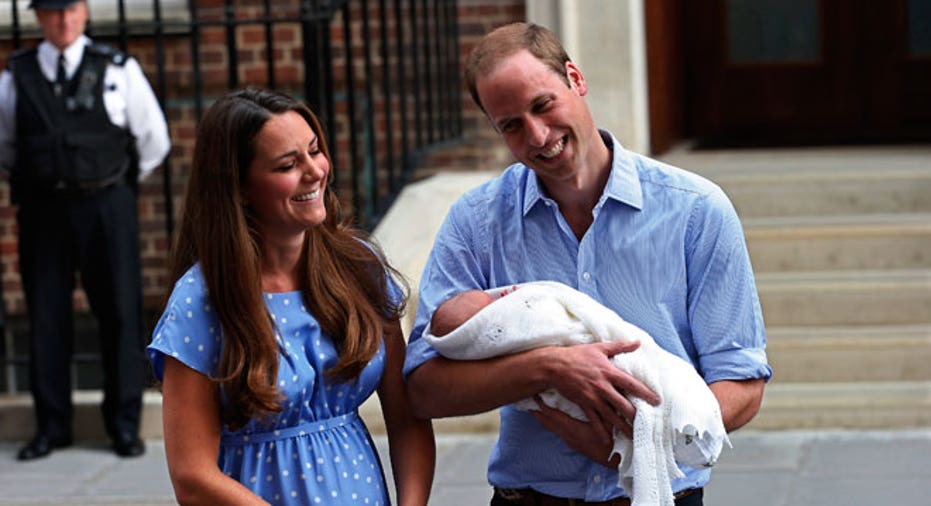Financial Planning Tips for Will, Kate and Other New Parents

Prince William and Duchess Kate are settling into their new title of parents, and are already making the first of many important decisions for their child with choosing the name George.They can expect to make many more choices to safeguard the one-day king’s future.
While it’s safe to say finances aren’t likely to be an issue for the royal heir, other new moms and dads should kick off parenthood on the right foot with prudent financial choices for a new child.
Financial planning for new parents is often dependent on personality types, says Robert Perez, on call estate planning attorney for Rocket Lawyer.
“Some parents like to be prepared for everything, while others wing it through life,” Perez says. “Those who are more organized are more likely to handle the financial decisions of having a child before they are born.”
And while most new parents can attest that having a new baby is a time of little sleep and a lot of stress, Perez says financial decisions should be a priority.
Here are a few budget items new parents should be sure to check off their list, along with stocking up on diapers and formula.
No. 1: Start saving early. Perez suggests parents should start saving before they decide to conceive. “Children are very expensive and a lot of surprising things pop up once you are a parent. Start putting money away right away.”
No. 2: Edit your will. William and Kate have just announced a name for the newest addition, so they can get to work on this point. Perez recommends parents alter their will as soon as they name a child.
“I wouldn’t wait too long thereafter a child is born to do this,” he says. “It's important to make sure the child is provided for financially, and also to designate a guardian for the child if something happens to you.”
Rocket Lawyer recently commissioned a Harris survey which found that 70% of Americans with children under 18 actually don’t have a will, which means there is no legal procedure on how a child will be cared for and or who will handle finances.
No. 3: Update your benefit plans at work. Parents with health insurance and benefit plans from an employer should add the baby to the plan right away.
“Once your child is born, most employers will allow you to make a change to your benefit plans,” Perez says. “You can add your child to your life insurance and designate him or her as your beneficiary. You should update your beneficiaries on a regular basis.”
No. 4: Update your retirement account. Retirement assets are the single largest asset for many families, says Perez. But he warns that if parents leave their assets to a child in a will, if they do not designate him or her as a beneficiary with the 401(k) provider, IRA account or pension provider, that will is null.
“You need to designate a beneficiary, regardless of what it says in your will,” he says. “People forget but your [assets] are contractual with your provider or company.”
No. 5: Start a college savings fund. Parents should start saving for college as soon as possible to avoid having to take on loans before retirement or have children take out massive loan amounts.
“An educational savings account enables you to put up to $2,000 a year into a fund, similarly to an IRA, where your earnings grow tax-free,” he says. “When you make withdrawals in the future, you have to use them for educational purposes before your child is 30.”



















